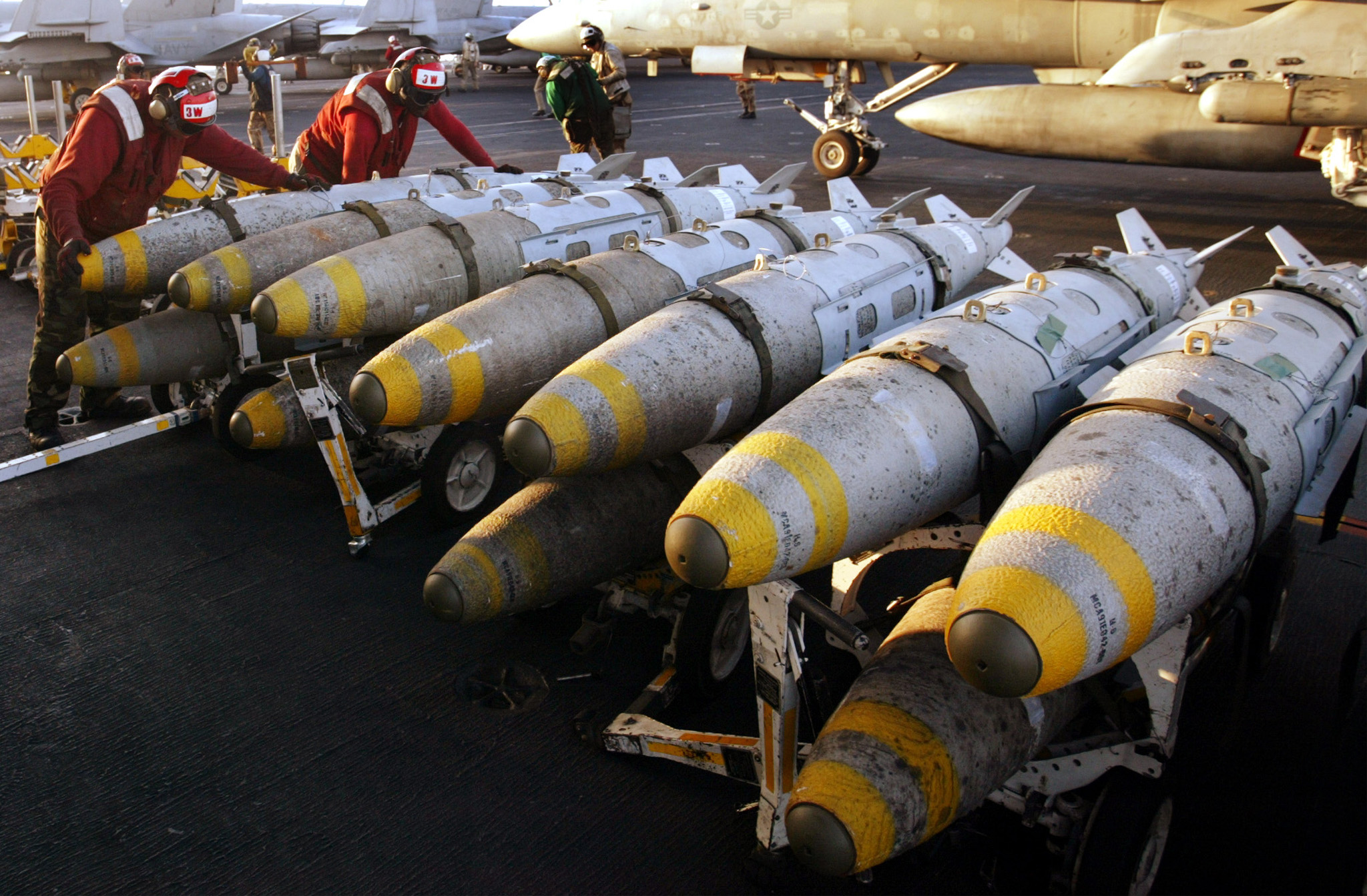GAZA, (PIC)
As flames and smoke rise from the heart of Gaza, a US cargo plane landed at Israel’s Nevatim Air Base, carrying GBU-39 bunker-buster bombs, as part of the latest batch of direct American military support to Israel.
This was not just an ordinary arms deal, but part of an escalatory path that has sparked widespread human rights and international criticism, with fingers increasingly pointing at Washington as a partner in an unprecedented humanitarian catastrophe.
Since the war erupted in October 2023, the United States has provided the largest military support in the history of its relationship with Israel, amounting to more than $17.9 billion in less than a year.
The aid included:
• $6.8 billion under the Foreign Military Financing (FMF) program.
• $5.7 billion to support air defense systems like the Iron Dome.
• $1 billion for the purchase of heavy munitions.
• $4.4 billion to replenish US stockpiles that were directly transferred to Israel.
The shipments included thousands of bombs, among them 2,000-pound high-explosive MK84 bombs, precision-guided JDAM bombs, as well as artillery shells and armored vehicles.
Cross-referenced reports from Anadolu and AP revealed the delivery of over 500 cargo planes and 107 arms ships since the start of the war.
Complicity in genocide
But alongside this military generosity, voices from experts and legal scholars have warned of potential US complicity in international law violations.
Linda Bilmes, professor of public policy at Harvard University, said, “Washington risks its legal and moral reputation by continuing to arm (Israel) without conditions, despite documented reports of civilian targeting.”
Security researcher William Hartung pointed out that the lack of accountability or restrictions on the use of these weapons could make Washington an indirect partner in war crimes.
International law experts warn that such support may contradict the 1948 Genocide Convention, which criminalizes complicity or assistance in acts of genocide.
Human rights organizations demand investigation
As reports increase of residential neighborhoods, schools, and hospitals being bombed with US-made munitions, Amnesty International has emphasized the need for an independent investigation into how these weapons are being used.
The organization noted that transferring arms amid a clear risk of crimes against humanity could be considered a violation of international law.
Dr. Christopher Gillette, an expert in international law, said that American support—given its scale and momentum—is approaching the threshold of legal complicity, particularly as the massacres continue and calls for a ceasefire are ignored.
The continued military flow, despite the rising death toll which has surpassed 51,000 Palestinian martyrs, two-thirds of whom are children and women casts serious doubt on the United States’ official discourse regarding human rights.
Satellite images and field investigations indicate the use of precision US bombs in the destruction of entire residential buildings during night airstrikes.
This prompted Human Rights Watch to describe some of the strikes as, “systematic violations that amount to war crimes and must not go unpunished.”
With more than 70% of Gaza’s healthcare infrastructure destroyed, and an unprecedented deterioration in the situation of the besieged population, the inevitable question arises: Will the United States remain just a financier—or become a legal partner in the catastrophe?
The answer awaits before the courts of history and perhaps, before the International Court of Justice.















